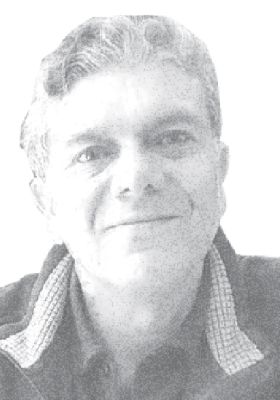Between now and the convening of the Syria peace talks in the Kazakh capital, Astana, in mid-January anything could happen that could derail the historic ceasefire agreement reached by Russia and Turkey and embraced by most opposition groups in rebel-held areas and the Damascus regime.
Despite a number of breaches, especially in the Wadi Barada basin near the capital, by the regime forces and threats by the Free Syrian Army (FSA) to withdraw from the deal, the truce appears to be holding.
Furthermore, Russia was able to extract an important “support” from Security Council members for its efforts, along with Turkey, to end the violence in Syria and jumpstart the political process based on the Geneva communiqué of June 30, 2012, and relevant UN resolutions.
The inclusion of the so-called Geneva principles represented a symbolic victory for the opposition.
Russia’s focus on a political process, following the fall of eastern Aleppo last month, was expected.
President Vladimir Putin has bolstered his position as the most important stakeholder in the Syrian file. His close coordination with Turkey’s President Recep Tayyip Erdogan underlined Moscow’s independent macro appraisal of the regional situation, something that worries both Damascus and Tehran, whose agenda, it now appears, sees a different path and outcome.
This is what prompted President Bashar Assad to dispatch his foreign minister, Walid Al Mouallem, and top security guy, Gen. Ali Mamluk, to Tehran this week for urgent deliberations.
Iran had issued a tepid welcome of the Russian-Turkish ceasefire deal and more recently rejected Putin’s call for all foreign militias in Syria to withdraw.
Moreover, Russia wants Egypt, Saudi Arabia and others to engage in preparatory consultations preceding the Astana conference, something that Tehran views with suspicion.
Ideally, the Iranians would like to push for a military solution; in Idlib, the Damascus countryside and in the south.
They insist that Assad’s future is off limits in any peace talks and that government control should spread over all the country.
Assad finds himself before tough choices. He cannot appear to oppose the Russians, whose military intervention more than a year ago was a game changer that saved his regime from collapse, but he also knows that going along with a solid political process that starts with Astana and could end in Geneva later on, will almost certainly deliver a deal at his expense at one point during the transitional period.
The Iranians, who have their own agenda for Syria, remain his best bet for now. But Tehran also knows that Russia’s intervention in the region has changed the geopolitical realities and that at one point it will come under pressure from Moscow to accept a possible political settlement.
Russia’s regional resurgence was made clear on at least three occasions in December.
First, it ignored Western pleas and allowed the fall of eastern Aleppo, but immediately worked out a nationwide ceasefire, against Iranian wishes.
Second, it held an important trilateral meeting on Syria in Moscow on December 20, which underscored its ownership of the Syrian file.
And third, it got UN support for the planned Astana meeting, which clearly excludes the West and in particular the United States.
Moreover, Putin’s alliance with Turkey, a NATO member, deepened the breach between Ankara and Washington, and between Turkey and Europe.
Russia’s clinching of this strategic regional high ground was due to its full-scale military involvement in Syria, the White House’s lack of strategy, not only in Syria but in the region as a whole, and the Putin-Erdogan rapprochement.
Putin did all this without sacrificing ties with Egypt, Saudi Arabia, the Gulf states and Iran. He is, for now, in a position to dictate a new course.
And with a friendly US administration taking over in few weeks, that course is unlikely to be challenged, at least not immediately.
But there is a difference between holding the Astana meeting and achieving results.
The regime and the opposition will meet face-to-face for the first time, but the gap remains wide.
On the opposition side, the Turkish-Russian initiative was like a rescue rope given to it following the disastrous fall of eastern Aleppo.
It will do its best to remain engaged, and stay relevant, even if that means making important compromises.
But it also knows that its influence over most rebel groups is questionable.
Even Ankara’s ties with some jihadist groups will be tested as the negotiations go forward.
Just as Russia is hoping to deliver the regime to the negotiations table, Turkey will be expected to keep most rebel groups in line. This will be the challenge in Astana.
Other foreign powers will try to sabotage or manipulate the Astana process, but in reality and after five years of bloodshed, that process remains Syria’s best hope.
Assad’s future, targeting terrorist groups, checking Iranian expansion and dealing with Syrian Kurdish political ambitions represent huge obstacles — and opportunities.
As the main stakeholder, Putin will have to be creative and stubborn for a deal to finally come through.
The writer is a journalist and political commentator based in Amman.
